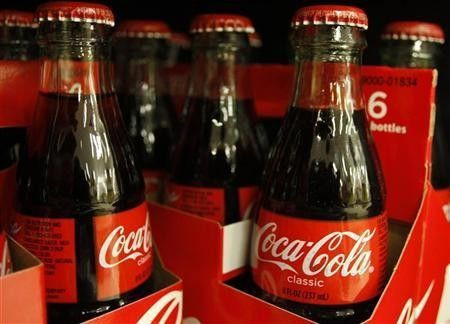New Zealanders Support Limit on Sugary Drinks; Coca-Cola Says Sugar Tax Can't Solve Obesity

A majority of New Zealanders have expressed their support on limiting the amount of sugar beverage companies put in their products. According to a national survey, 46 per cent of Kiwi adults said there must "definitely" be a limit to sugar in soft drinks while 32 per cent answered "possibly" on imposing such limits.
In the same poll, fewer Kiwis were found to support the idea of tax on sugary drinks. However, 46 per cent of New Zealanders agree that the sugar content in takeaways must be taxed with 59 per cent preferring a limit on the serving size of soft drinks and other sugary drinks.
The survey was conducted by Horizon Research and it was the first time a poll had indicated public opinion on policies to curb sugar intake.
New Zealand's Health Minister Tony Ryall said the government had no plans of imposing a sugar tax in the country. Coca-Cola New Zealand remarked that a government regulation like a sugar tax for example, "cannot solve the obesity crisis." In response to the global obesity epidemic, the softdrinks company has introduced low-energy drinks.
In a statement, Coca-Cola said recent data showed that one in three soft drinks bought by customers contain no sugar. The giant soft drink company added that sales volume of its low-calorie beverages have also increased as sugary drinks were in a state of decline.
Curbing unhealthy sugary drinks and high-calorie food
Some groups in New Zealand especially young men were found to consume more sugar than the recommended amount by the World Health Organisation (WHO), according to reports.
The WHO has cited New Zealand as one of the worst countries with increasing obesity rates and fast food consumption in the world. According to WHO's study about fast food purchases per capita, New Zealand ranks fourth out of 25 countries in terms of fast food purchases.
The researchers behind the study suggest that regulating food products must be improved to help curb unhealthy eating habits. Instead of using traditional data-gathering methods for the study, researchers based the study on the number of fast food transactions per capita beginning 1999 up to 2008 in 25 wealthy countries.
The fast food transactions per capita are then compared to body mass index or BMI in countries in the same period to generate fast food consumption data.
According to the Ministry of Health's health survey in 2012, more than 1.1 million adults in New Zealand are obese. The obesity rate has increased in adults with 31 per cent compared to 29 per cent in 2011.




















